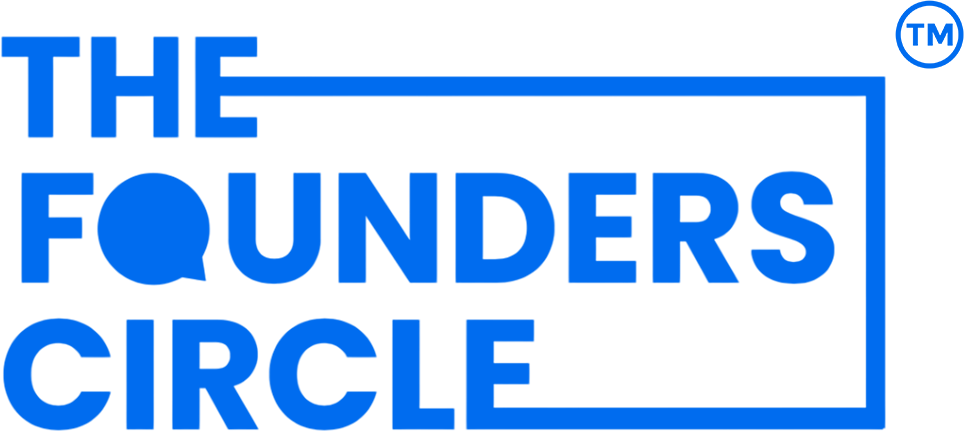Why Adaptability Is Hard for Startup Founders — and What They Can Do About It

In today’s fast-moving startup world, success isn’t just about innovation or funding — it’s about flexibility. The ability to embrace change and pivot quickly often determines whether a startup survives or fades away. Yet for many founders, adaptability for startup founders doesn’t come naturally. Balancing ambition with uncertainty can be challenging, especially when the stakes are high.
Adaptability means staying open-minded, resilient, and willing to evolve. It’s about recognizing that what worked yesterday might not work tomorrow — and having the courage to change direction when needed. At The Founder Circle, many founders share that their biggest breakthroughs came only after they adapted to unexpected challenges.
What Makes Adaptability So Difficult for Founders
Founders are visionaries. They start with bold ideas, strong convictions, and clear goals. But those very qualities can sometimes make change difficult. When you’ve poured your heart, time, and resources into an idea, shifting your strategy can feel like admitting defeat. That’s why adaptability for startup founders often feels like a tug-of-war between persistence and flexibility.
Startups operate in environments of constant uncertainty — new competitors, evolving customer expectations, or shifting market conditions. The challenge lies in knowing when to hold your ground and when to pivot. Building resilience and growing your startup network can often help founders gain fresh perspectives that make these decisions easier.
This is where understanding why founders need adaptability becomes crucial. Adaptability isn’t about abandoning your vision — it’s about adjusting your path to reach it more effectively.
The Role of Mindset in Building Adaptability
To cultivate adaptability for startup founders, it’s important to build the right mindset. Founders who view change as an opportunity rather than a threat are better equipped to lead in dynamic markets.
Developing an adaptability mindset for entrepreneurs means embracing uncertainty, learning from failure, and staying curious. Founders who encourage open communication and experimentation within their teams often find innovative solutions faster than those who resist change.
As one founder shared in The Founder Circle’s community for founders, “The moment I stopped fearing change and started using it as feedback, my business transformed.” That’s the essence of adaptability — turning the unknown into an advantage.
Practical Strategies to Strengthen Adaptability
Here are some actionable steps that can help develop adaptability for startup founders and make it a lasting part of your leadership style:
1. Stay Connected to Evolving Trends
Founders must stay aware of startup trends 2025 and beyond to anticipate changes in technology, customer behavior, and market demand. The more informed you are, the easier it becomes to respond proactively rather than reactively.
2. Build a Resilient Support Network
Surrounding yourself with other founders, mentors, and peers can help you see challenges from multiple perspectives. Participating in communities like The Founder Circle or joining a community for founders fosters collaboration, accountability, and shared learning — all essential for developing adaptability.
3. Strengthen Your Emotional Intelligence
Adaptable leaders understand both themselves and their teams. Working on emotional intelligence for startup leaders allows you to navigate tough decisions with empathy and balance. Founders with emotional awareness can respond to setbacks constructively and guide their teams with confidence.
4. Reflect and Realign Regularly
Take time to evaluate what’s working and what’s not. Adaptability for startup founders improves when reflection becomes a habit. Regular check-ins help founders make informed adjustments instead of waiting for crises to force change.
5. Learn From Others’ Experiences
Engage with peers and seek advice from seasoned entrepreneurs who’ve navigated similar transitions. Listening to how others handled uncertainty can inspire new strategies for overcoming change as a startup founder.
The Emotional Side of Adaptability
Founders often underestimate the emotional toll of change. Every pivot, product failure, or shift in direction can test your confidence. Building adaptability for startup founders isn’t just a strategic process — it’s deeply emotional.
Many founders experience fear of losing control or making the wrong decision. However, the truth is, adaptability doesn’t mean losing your identity — it means growing into it. Resilient leaders understand that flexibility is strength, not weakness.
Communities like The Founder Circle create a safe environment where founders can discuss these challenges openly, learn from shared experiences, and gain the support needed to adapt with confidence.
How Adaptability Fuels Long-Term Growth
Founders who master adaptability for startup founders are more likely to sustain growth and innovation. When leaders respond to change effectively, their startups become more resilient and agile.
Adaptability encourages experimentation — a critical element of entrepreneurship. Founders who stay open to feedback, explore new markets, and evolve with customer needs are better positioned for long-term success.
By focusing on entrepreneur adaptability skills, founders build a culture that thrives on learning and continuous improvement. Employees, investors, and partners naturally gravitate toward leaders who can remain calm and strategic amidst uncertainty.
As one founder in The Founder Circle community said, “Adaptability isn’t about changing who you are — it’s about evolving to stay relevant.” That’s what sets great founders apart from good ones.
Connecting Adaptability With Purpose
Adaptability becomes even more powerful when aligned with purpose. Founders who know why they’re building their business can adapt more easily because their core mission remains constant.
When you’re focused on building a mission-driven startup, every change you make feels like a step toward improvement rather than a compromise. The purpose becomes the anchor, and adaptability becomes the vehicle that keeps you moving forward.
Similarly, growing your startup network helps you learn from others’ adaptability journeys, offering both inspiration and accountability to keep pushing through challenges.
Final Thoughts
At its core, adaptability for startup founders is not just a skill — it’s a survival strategy. Markets evolve, customer preferences shift, and new technologies emerge every day. The founders who succeed are the ones who learn, adjust, and grow with every challenge.
By developing entrepreneur adaptability skills, staying emotionally grounded, and aligning change with purpose, founders can turn uncertainty into opportunity.
Communities like The Founder Circle remind us that no founder is alone in this journey. With collaboration, self-awareness, and a commitment to continuous growth, mastering adaptability for startup founders becomes the key to long-term success.
